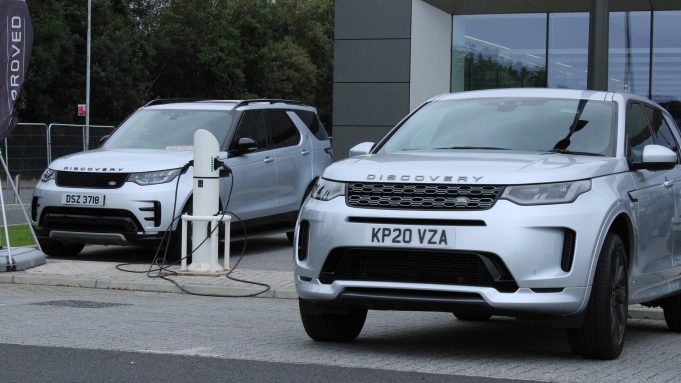Last Updated on July 16, 2023 by
Rising gas prices are causing more and more motorists to seek alternative fuel sources for their automobiles, with hybrid vehicles being one of the most popular solutions. In this article, you will learn what hybrid vehicles are, how they work, and why increasing numbers of people are investing in them.
Hybrid Vehicles Use Several Propulsion Methods
A gasoline-electric hybrid vehicle, which combines an internal combustion engine and an electric motor, is the most prevalent example. This type of hybrid vehicle is intended to maximize fuel economy and reduce emissions by capitalizing on the advantages of both propulsion systems.
Internal Combustion Engine
The internal combustion engine runs on gasoline, just like a conventional automobile, but it is designed to be more compact and efficient. It is connected to a battery that, when necessary, powers the electric motor. The electric motor charges the battery via regenerative braking, improving fuel economy and increasing energy efficiency over traditional cars.
Fuel-Saving Features
In addition, hybrid vehicles frequently include fuel-saving features such as stop-start technology, idle reduction systems, and aerodynamic design elements. These features are intended to minimize emissions and maximize fuel economy, allowing drivers to realize substantial savings at the gas pump.
Overall, purchasing a hybrid vehicle can be advantageous for drivers who wish to reduce their operating expenses and environmental impact. Hybrid cars are gaining popularity due to their performance, dependability, and environmental friendliness.
Introducing Hybrid Automobiles
A hybrid automobile is a vehicle that employs two or more distinct power sources to drive. The most prevalent hybrid vehicle type combines an internal combustion engine with an electric motor. While more power is required, such as when accelerating or ascending a hill, the electric motor takes over from the ICE.
Hybrid automobiles are more fuel-efficient than conventional gasoline-powered automobiles because they consume less gasoline overall. Additionally, they emit fewer pollutants, which is better for the environment.
If you’re considering purchasing a hybrid vehicle, you must do your homework to ensure it’s the best option. Before selecting a selection, consider your driving habits, budget, and requirements.
Advantages and Detriments of Hybrid Vehicles
Before moving from a gas-powered vehicle, hybrid automobiles have a few pros and downsides. The benefits of hybrid vehicles include improved fuel efficiency, less pollution, and government subsidies. Hybrid automobiles may have a higher purchase price and a shorter battery life than pure electric automobiles.
Fuel Economy
One of the primary benefits of hybrid vehicles is that they achieve much greater fuel economy than gasoline-only vehicles. On average, hybrids may achieve 30 to 60% more fuel economy.
Lower Emissions
Another benefit of hybrids is that they emit fewer emissions than conventional gasoline-powered vehicles. Because hybrids use an electric motor and a gasoline engine, they produce less pollution overall.
In several nations throughout the globe, governments provide financial incentives for purchasing hybrid or electric automobiles. These incentives may assist in offsetting the greater initial price of these automobiles.
One of the primary downsides of hybrid vehicles is that they can cost more than conventional gasoline vehicles, and this is because hybrids involve costly batteries and other specialized components.
Shorter Battery Life
Another problem of hybrid automobiles is that their batteries often only last for a short time, as those in pure electric vehicles. This implies that you may have to replace your battery sooner than you would with an electric automobile.
How Do Hybrid Automobiles Operate?
A hybrid automobile is a vehicle that operates on two or more distinct power sources. The most prevalent hybrid vehicle type combines an internal combustion engine with an electric motor. This engine type drives the vehicle at startup and low speeds while the electric motor takes over at higher speeds.
The internal combustion engine takes over when the electric motor’s battery dies. Most hybrid cars include regenerative braking systems that store brake energy in the battery pack, and this recharges the battery pack to power the electric motor as needed.
Hybrid vehicles are more fuel-efficient than conventional internal combustion engines because they use electric and gasoline power. They release less pollution than ICE vehicles since their tailpipes create fewer pollutants. Additionally, hybrid vehicles are often lighter than internal combustion engines, contributing to their enhanced fuel economy.
Various Types of Hybrid Automobiles
A hybrid automobile, as its name indicates, is a vehicle that employs two or more distinct power sources. The most prevalent hybrid vehicle has an internal combustion engine and an electric motor. Additionally, there are diesel-electric hybrids and fuel-cell hybrids.
Gas-Electric Hybrid Cars
Currently, gas-electric hybrids are the most prevalent form of a hybrid vehicle. An internal combustion engine and electric motor power the vehicle. The electric motor improves the engine’s efficiency and gives additional power when necessary, such as while accelerating or climbing hills. Gas-electric hybrids often achieve greater fuel efficiency and generate less pollution than conventional gasoline-powered vehicles.
Diesel-Electric Hybrid Cars
Diesel-electric hybrids employ diesel engines instead of gasoline engines. Diesel engines are more fuel-efficient and pollutant-free than gasoline engines, and Diesel-electric hybrids may be more fuel-efficient and environmentally benign than gas-electric hybrids. Diesel engines are louder and more jarring than gasoline engines. Therefore, they may not suit everyone.
Fuel Cell Hybrid Cars
Fuel cell hybrids are more recent hybrid vehicles that use a fuel cell instead of an internal combustion engine. Fuel cells create power from hydrogen fuel, producing zero pollution. Fuel cell hybrids have the potential to be incredibly efficient. Still, they are presently costlier than other hybrid vehicles, and there is no commercially available fuel-cell hybrid vehicle.
Maintenance and Repairs for Hybrid Vehicles
The maintenance of a hybrid vehicle is comparable to that of a conventional gasoline-powered vehicle. The primary distinction is that hybrid vehicles feature a battery pack that requires regular maintenance.
1. The first step in maintaining your hybrid vehicle correctly is to read the owner’s handbook, which will give you an idea of what needs to be done and when.
2. Next, you must keep an eye on the battery pack, which is the most vital portion of the hybrid automobile and must be routinely examined and cleaned.
3. The tires on hybrid vehicles must also be properly filled and aligned, which helps to enhance fuel efficiency and minimize premature tire wear.
4. Additionally, replacing the oil and filter in a hybrid vehicle is essential, just like in a conventional gasoline-powered vehicle. However, you should do this more often while driving in heavy traffic or bad weather.
5. Adhering to these straightforward care and maintenance guidelines can keep your hybrid vehicle operating smoothly for many years.
Advantages of Owning a Hybrid Vehicle
There are several advantages to having a hybrid vehicle. One of the most apparent advantages of hybrid automobiles is that they achieve a much better gas economy than conventional gasoline-powered vehicles. This implies that you will save money on petrol and contribute to environmental protection by cutting your emissions.
Hybrid vehicles typically have a much longer lifespan than their gasoline-powered counterparts, which is another great advantage of hybrid ownership. Because hybrids have fewer moving components than conventional vehicles, they are less likely to malfunction.
If you’re searching for a car that is both environmentally friendly and cost-effective, a hybrid vehicle is your best bet.
End
Hybrid vehicles are a great option to gasoline-powered cars because of their lower emissions and fuel economy. Hybrid cars use two power sources to enhance performance, handling, and ownership costs. I hope that you understand about these hybrid cars and their cost effectiveness compared to other automobiles.












